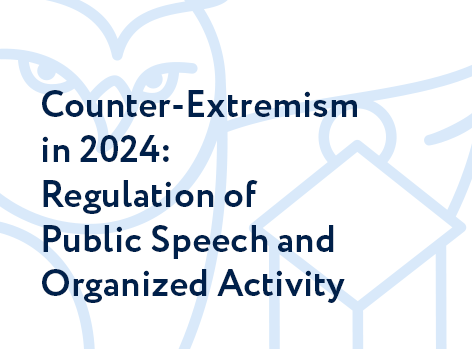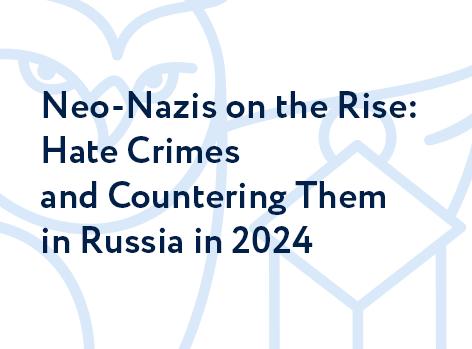The SOVA Center for Information and Analysis took part in the 2008 OSCE Human Dimension Implementation Meeting in Warsaw. We publish the text of the intervention made on October 6, 2008, by Galina Kozhevnikova at the working session "Tolerance and Non-Discrimination II."
Honored Chairman, Ladies and Gentleman,
I would like to turn your attention to problems related to counteractions taken to combat racism and discrimination in Russia, where the number of hate crimes has consistently grown over the last several years.
First, in Russia, an extremely wide legal framework to define the term "extremism" has been established. This definition includes actions at many different levels of danger to society - from terrorist acts and racially-motivated killings to a vague "incitement of social discord." This framework negatively affects necessary law enforcement activities aimed at prosecuting hate crimes - both violent ones and ones just used as propaganda. Frequently the anti-extremist legislature is being used to limit the basic freedoms of citizens (expression, assembly, etc.). However, the focus of the existing law enforcement agencies is being distracted by the prosecution of less significant crimes - for example, individuals are being sentenced for statements made one time on internet-forums at the same time as ultra-right publications and internet portals are continuing to operate without any obstacles. The latter are far more influential than the individual expressions of xenophobia.
Secondly, the indeterminate nature of the legal framework as a whole with regards to the wide-ranging anti-extremist campaign often becomes an obstacle to the free discussion of the problems of xenophobia and discrimination in the mass media. For example, in August, the newspaper "Novaya Gazeta in St. Petersburg" received a warning for extremism for an article which expressed indignation with the intention of the ultra-right organization Movement Against Illegal Immigration to conduct raids on Georgian citizens residing in Russia. Throughout this, the actions of the movement itself did not attract the attention of law enforcement authorities. A year earlier a similar warning was given to the newspaper "Izvestiya" for publishing an article about discriminatory practices in the Republic Yakutiya. It should be noted that this kind of warning serves as a serious sanction which can result in the closing of the publication.
Thirdly, the collection and publication of information about hate crimes is still unsatisfactorily being conducted. The wide legal framework and definitions employed by the government allow for the manipulation of statistical data, such as the arbitrary inclusion or exclusion of various kinds of crimes or the conflation of indicators of crimes committed with a hate motive or not (the most well-known anti-racist article of the Criminal Code of Russia is used to prosecute violent and propaganda-related crimes, and in the statistics of crimes as a whole, distinctions between the two types are not made).
A system of standardizing suspicions of hate motives during the registration of violent crimes has also not been created.
Current official statistics are also not being publicly aired. Only from time to time do certain fragments of data appear in the speeches of government officials.
A consequence of the unsatisfactory quality of statistics as well as the absence of public information about the crimes is the fact that this data is not being used to promote substantive discussions about the problems of xenophobia, racist crimes and discrimination.
In light of this, we recommend that:
OSCE:
1. Continue discussions with member countries which already have experience in gathering statistics about racism and discrimination.
Member states of the OSCE:
1. Focus legislation regarding counteractions to racism on the most dangerous, i.e. violent, crimes.
2. Regularly publish statistics related to crimes committed with racist, ethnic, religious, or hate motives, ideally with distinctions made between the various types. Separate this data from statistics on crimes which right now are being considered by articles of the existing national criminal legislation.




